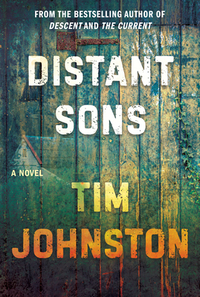Baumgartner by Paul Auster
 Friday, October 27, 2023 at 7:47AM
Friday, October 27, 2023 at 7:47AM 
Published by Atlantic Monthly Press on November 7, 2023
It’s customary for authors to write a meditation on aging as they cope with their own journey into twilight. Paul Auster is 76 and thus of an age that encourages writers to contemplate their mortality. Yet his prose is still sharp, his insights as strong as ever. If, like Sy Baumgartner, Auster sometimes forgets to zip up his fly, he hasn’t forgotten how to write. Like Baumgartner, “he can still think, and because he can think, he can still write, and while it takes a little longer for him to finish his sentences now, the results are more or less the same.”
Baumgartner begins the novel as a philosophy professor on leave from Princeton. He lives a “day of endless mishaps,” beginning with a pan that scorched because he forgot to turn off a burner, a burned hand as he picks up the pan, and a tumble down the basement stairs as he tries to guide a new meter reader. The unfortunate events take his memory back to his first apartment at the age of twenty and his first purchase of cooking utensils, including the pan that is now ruined, and his first glimpse of Anna. They married five years later and his true life began, a life that ended with her death nine years ago.
Much of Baumgartner’s current life is spent coping with grief. Learning that someone’s fingers were severed in a work accident, Baumgartner begins to think of phantom limb syndrome as “a metaphor of human suffering and loss.” He views the loss of Anna as having severed his arms and legs from his torso, leaving him “a human stump, a half man who lost the half of himself that had made him whole.” He learned to put on a game front in the years following her loss, even learned to chase women, but the artificial appendages he has attached to his limbless torso feel nothing when he catches one. A year after his tumble down the stairs, he has learned to understand that “if you are the one who lives on, you will discover that the amputated part of you, the phantom part of you, can still be a source of profound, unholy pain.” He has been hiding from that pain — slowly replacing everything in his house that might remind him of Anna — but “to live in fear of pain is to refuse to live.”
Baumgartner has a dream — or he assumes it’s a dream — about answering a disconnected telephone and listening to Anna explain the dark void of the afterlife, a void she breaches only because he still thinks about her. The dream propels him into motion, reinvigorates dormant limbs, eventually allows him to open his heart to Judith, “something altogether different and new, and how could anyone who has lived as long as he has ask for anything more than that?” He later prepares to give access to Anna’s literary work to a college student who he sees as a surrogate daughter, a young woman who embodies Anna’s spirit and whose reverence for Anna’s work matches Baumgartner’s veneration of Anna’s life.
Baumgartner spends much of the novel’s second half recalling his family history (including a nostalgic examination of his mother’s life, a woman whose maiden name was Auster). He writes an essay about a trip to Ukraine, where his grandfather Auster lived before emigrating to America. He hears a haunting story about the city of his grandfather’s birth, a city that was taken over by wolves after all its residents had been killed or fled. He chooses to believe the story, for its symbolism if not for its absolute truth. Auster’s point (in this and other parts of the novel) seems to be that the stories we hold in our memory are the stories we need, even if they are not factually precise.
Apart from the novel’s exploration of its title character, Baumgartner is a celebration of good people, from the kind meter reader who helps Baumgartner when he falls down his basement stairs to a carpenter who learned Spanish to converse with Latin American teammates when he played minor league baseball and “has a gift for spreading life wherever he happens to go.” Most good people will not make it into history books, but they are no less important in the overall scheme of human existence. Despite the evil that wiped out the city of his grandfather’s birth, despite the darkness of political leaders that threatens to overshadow decency, Auster’s focus is on the positive, however tenuous positivity might be in a life that inevitably mixes joy with pain.
The novel ends on an ominous note of ironic ambiguity that nicely sums up Baumgarter’s approach to life. What happens next is for the reader to imagine. In the course of a single life, a life full of love and loss, what happens next is relatively unimportant. Baumgartner’s story is only one of billions. However it might end, its importance lies in the fact that Baumgartner existed, that he contributed, that he loved and was loved in return. As Baumgartner asks, how could anyone “ask for anything more than that?”
RECOMMENDED



